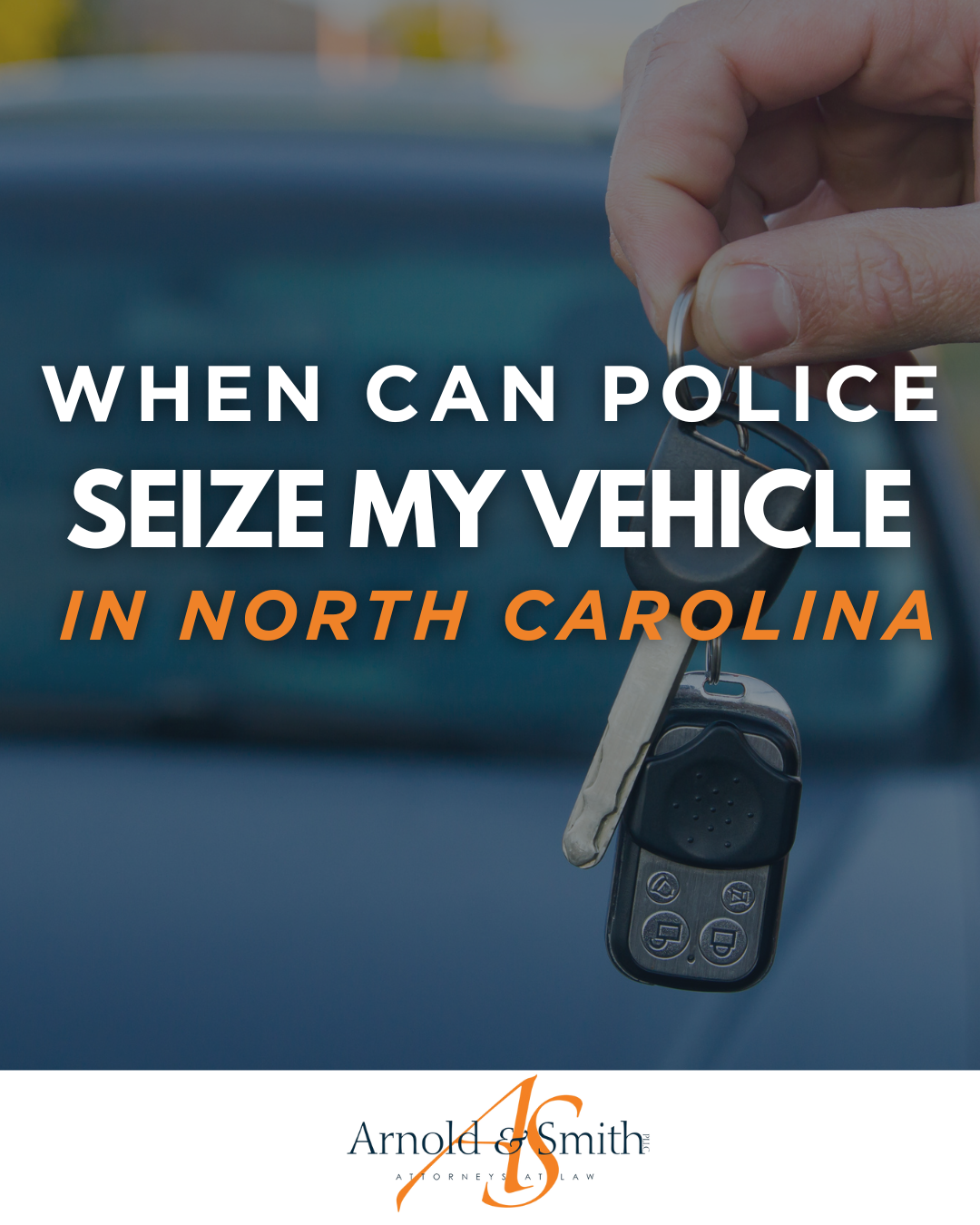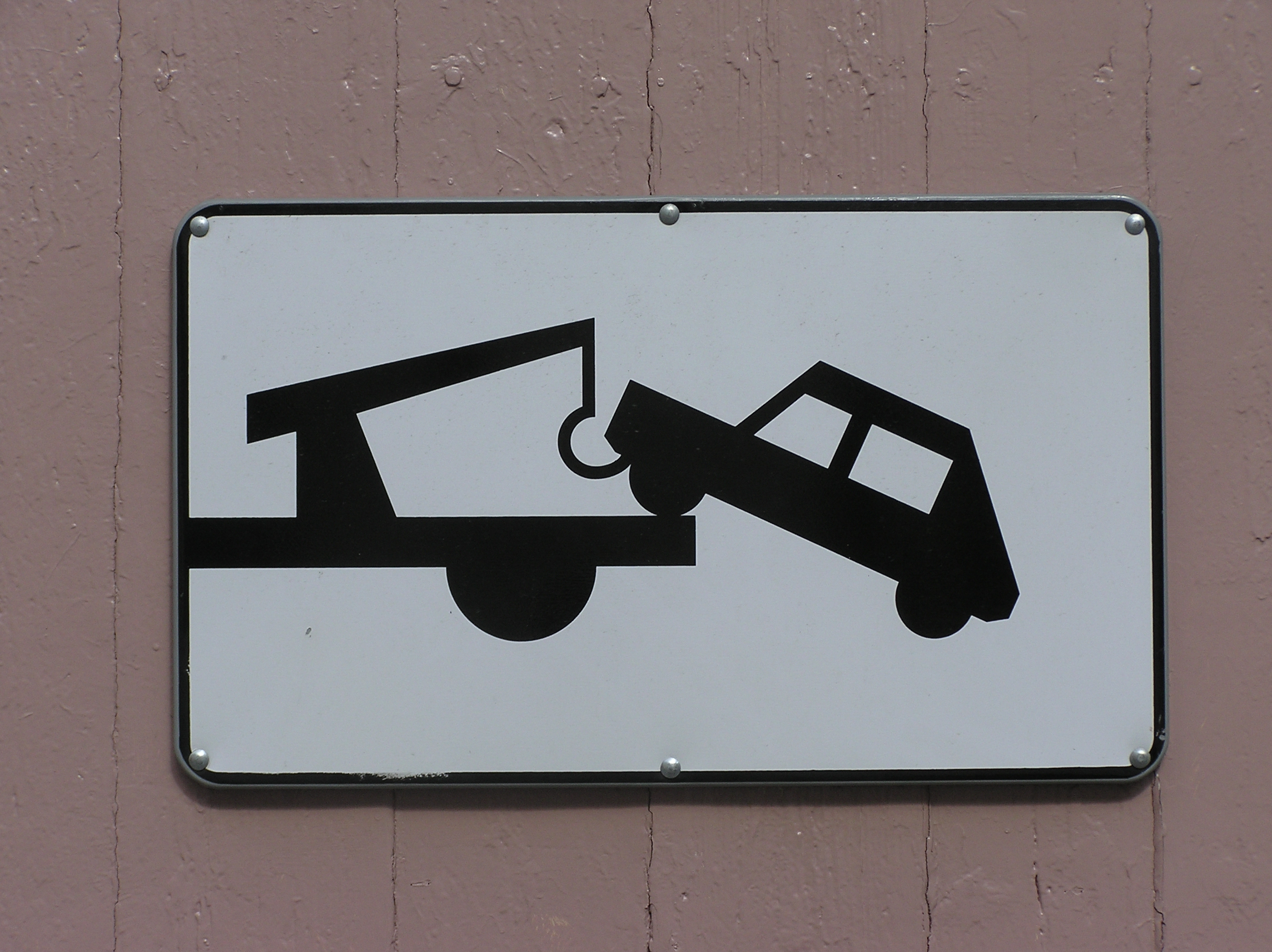 When Can the Police Seize My Vehicle in North Carolina?
When Can the Police Seize My Vehicle in North Carolina?
Traffic stops happen on a daily basis and most drivers will get stopped at least once or twice during their lifetimes. While most traffic stops happen without incident, there are times when complications arise. In some cases, the police actually seize a vehicle as the result of criminal activity associated with the driver or owner. Many people wonder under what circumstances can the police take a vehicle?
What is Vehicle Seizure?
Vehicle seizure is the lawful taking of a vehicle by law enforcement. The seizure of a vehicle may result in forfeiture, but not always. Forfeiture allows the state to take legal ownership of the vehicle, and they may sell it. There are some circumstances where the police can and sometimes are required to seize a vehicle. There are a variety of situations in which the police must seize a vehicle:
- When a driver is charged with impaired driving and has a revoked license due to a previous DUI
- When a driver is charged with impaired driving and doesn’t have a valid license, and has no valid insurance
- When a driver is charged with felony speeding to elude arrest
- When a driver is charged with a drug offense
- When the vehicle is suspected of being used to transport drugs
- When a vehicle is suspected of containing evidence of a crime

In other situations, the police may tow a vehicle to remove it from the area when the driver has been arrested and is unable to move it. In those instances, the vehicle’s owner is responsible for getting their vehicle back from impound. Whether you will be able to get your vehicle back depends on a variety of factors. It is helpful to consult with a knowledgeable criminal defense attorney to learn more about your specific case.
Can I Get My Vehicle Back?
A car owner may be able to get their vehicle back after seizure. The law allows the owner to retain their vehicle in cases where they are not guilty of the charges or when the charges were dismissed. You may also be able to get your vehicle back if you are able to show that at the time, your license was not revoked due to prior offenses. You may file a petition with the county clerk, which you may do prior to the resolution of the court case. The prosecutor may consent to the release of the vehicle to you.
However, a vehicle that was seized could be subject to forfeiture. If so, you are no longer able to retain ownership of your vehicle. This could occur in cases where you were found guilty of a crime that utilized the vehicle. In situations of forfeiture, the state takes ownership of the vehicle through a legal process. The state then has the ability to keep or sell the vehicle as they prefer. If you are allowed to keep possession of the vehicle, you are generally responsible for payment of the towing expense and storage fees.
If your vehicle was seized, you will want to take steps to determine how to resolve the matter and get your vehicle back. Contact our legal team at Arnold & Smith, PLLC, at (704) 370-2828 to learn how we can help you today.
The criminal defense attorneys at Arnold & Smith, PLLC make it their mission to zealously defend their clients on a wide range of criminal matters at both the state and federal levels. These matters may include any charge from traffic offenses; DWI/DUI; drug charges (from simple possession to possession with intent to distribute and trafficking); gun permit denials; weapons offenses; and property crimes (larceny, breaking and entering, robbery, fraud, embezzlement, white collar offenses); to sexually related offenses (indecent exposure; sexual assault, crimes against nature, removal from sex offender registry); and violent crimes (domestic violence; assault; manslaughter; homicide, murder). Other legal issues that Arnold & Smith, PLLC criminal clients may be facing include restraining orders, restraining order and probation violations, expungements; appeals; and immigration issues related to criminal charges. Our criminal defense attorneys are passionate about ensuring that individuals empower themselves by being informed about their constitutional rights, and stand at the ready to fight in the defense of those facing criminal charges.
Source:
https://www.ncleg.net/enactedlegislation/statutes/html/bysection/chapter_20/gs_20-28.3.html
Image Credit:
https://www.freeimages.com/photo/do-not-park-1445020
See Our Related Video from our YouTube channel:
https://www.youtube.com/user/ArnoldSmithPLLC/videos
See Our Related Blog Posts:
 Charlotte Criminal Lawyer Blog
Charlotte Criminal Lawyer Blog


